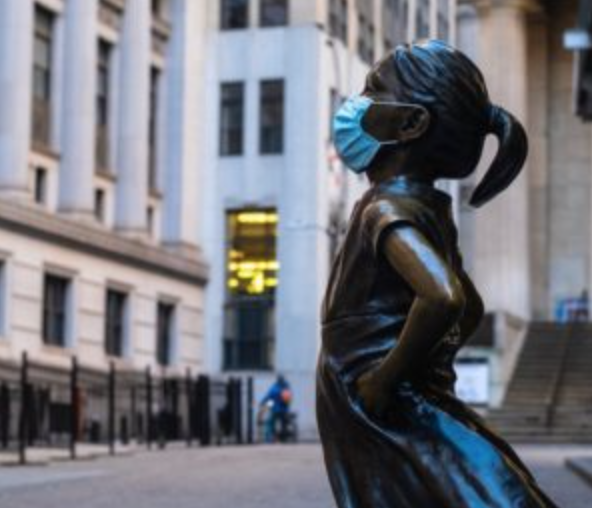How, What and When Normal Campus Life Look Like at Pace University
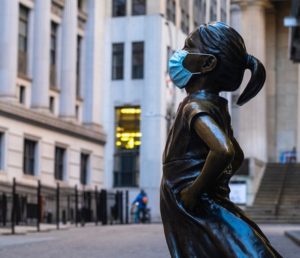
Safety guidelines have made living on campus look very different from years before, but how will they play out in the new “normal?”
There are no definite answers as of now since normal is different to everyone and it’s better to be safe rather than sorry for an extended period of time instead of letting down the guard mistakenly. At Pace, the safety guidelines and restrictions put in place have served to be successful. Aside from one residential building in the fall seeing over 24 positive cases of COVID-19 at one point, the university has been proficient in limiting positive cases.
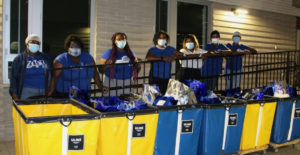
Pace was mentioned in an article by College Magazine for their handling of the pandemic. The university ranked in at No. 4 out of ten named institutions of higher education.
“Normal will look very different depending on who you ask,” said Residence Director, Wen Xi.
Ness Tabaru, a junior resident assistant at the townhouses, believes that normal will look different in the near future. She says, “that masks aren’t going anywhere.”
Though Xi and Tabaru both hold crucial positions that influence campus life, there are no definite answers yet. Both of their opinions are their own and are not reflective of the university.
“I expect face masks to become a regimented part of campus life,” explained Michael Wilson, a senior at Pace.
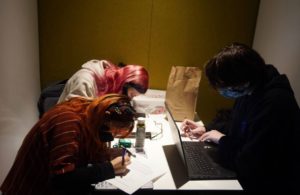
“Until there is some permanent solution to COVID, masks aren’t going anywhere. We’re going to have to social distance for a while,” Tabaru explained.
She also mentioned things like how maximum room capacity, guest policy, and restricted class sizes will remain how they are for the near future.
This, in turn, leaves more opportunities for online classes. More opportunity for online classes means safety. Therefore, it is safe to assume that classes assisted by Zoom also are not going anywhere.
Along with online classes, outdoor events have also been useful in keeping the campus safe. “For the campus as a whole, we could keep trying to do outdoor events, such as we are now,” Wilson stated.
At the very least, Wilson wishes that common, or even outdoor spaces could be used more, “So that people can feel like they’re on a college campus instead of living in four walls and a door.”
“If COVID subsides, Residential Life could be a little more lenient with guests in the residence halls, but it’ll probably be limited to students within the same building,” Tabaru said. Of course, this is not guaranteed.
However, staying socially distanced, keeping events outside, staying out of large groups, and wearing a face mask could definitely help us get to that sense of normalcy.
Along with the more common acts, such as wearing a face covering and social distancing, community policing will also play a big part in helping us return to normal.
As Xi puts it, “We have to remind ourselves that this is bigger than one person. One person getting sick impacts more than just that one person! It impacts the people they live with, their classmates, etc.”
We, as a united community, must do our part and keep ourselves and others accountable for being responsible for staying safe.
“I think if everyone does their part to keep our campus safe, we can build a community that thrives during this and sets the stage for what being a community means during times of uncertainty,” Xi stated.
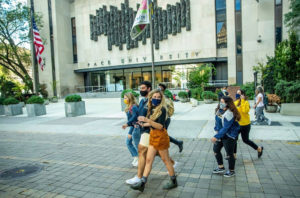
Tabaru and Wilson both do not see campus life changing much anytime soon. Tabaru believes that there is no definite time that we could see normal campus life and that it all depends on what the government mandates.
The timeline is complicated as many variables can affect it. Xi views this situation as controlling what she can to do her part to “help us get back to ‘normal.'”
Wilson, on the other hand, was confident that campus life could begin to look more normal in the fall semester of 2021. As he graduates this spring, he does not believe that much will change within the next three months.
“In regards to the current situation, I can’t see this ending within the next three months. I’d love to, but it’s more likely that this will be sticking around through the spring,” Wilson stated.
“For a lot of events now, we have online registration. Maximum [capacity] of 50 people,” Wilson continued. “When I worked [Week of Welcome], students RSVP’d hours in advance for things like the food trucks. We could only have 50 people and we would have a clicker to keep track of how many people are there, staff included which makes it harder to show off events to new students.”
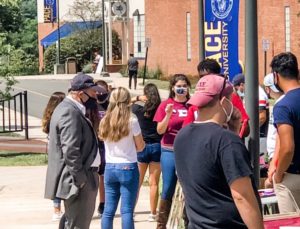
Life will seem “more restricted,” as Wilson stated, but we may not see life like we did before COVID-19 hit the United States.
Many first-year students may not be experiencing the same college life as they imagined. Colby Payne, a freshman gives his take on college amid COVID-19 in the video below:
As a result, things like wearing a mask in public, staying socially distanced and staying out of large groups could very well be the new normal campus life.
Your donation supports independent, student-run journalism at Pace University. Support the Pace Chronicle to help cover publishing costs.

